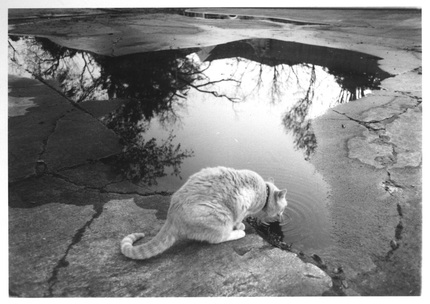
I don't remember precisely when Kitty chose to adopt me. The first time I saw her was a marvelous Spring day . She was asleep on the back porch, and when I opened the door, she scurried off down the steps. Full-grown, I thought she probably belonged to one of my neighbors. The next day she was back sunning herself on the second-story vantage point where she could keep an eye out for approaching dangers. When I peered out at her through the window in the door, she looked up at me with a little less alarm. I opened the door, and she again fled down the steps, this time pausing to look back at me to see if I was in pursuit. Within a couple of days she only seemed a little annoyed at my intrusions, and began to hold her ground, loath to leave her comfortable spot.
After I saw her drinking rain water on the carport, I began leaving water in a bowl on the porch, which she drank with un-cat-like abandon. Before the week was out I had gone across the street and purchased a box of cat food. This she ate with great vigor, so it seemed clear she was currently without a caretaker. What I found strangely endearing was her meow, more of a throaty screech than a feline meow, halfway between a growl and a purr. Whether she was born with this aberration or acquired it through some trauma, I never could learn. Her vocalization explained why, soon after she started hanging around, the little boy in the next building knocked on my door, breathless with an urgent message of warning, "My mom, she says the cat has a disease and you shouldn't touch her." His mother was overcautious, I thought, or perhaps she didn't want a straggler cat underfoot or made up a rationalization to keep him from getting too emotionally connected to a pet she would not let him keep. I was apparently second choice from the beginning.
At first she wasn't too interested in coming inside. I would leave the kitchen door open, and she would saunter in and inspect the kitchen, sniffing curiously here and there. I had a swinging door between the kitchen and the living room which made a great "swish" when I would push through. The first time she witnessed this strange phenomena she was quite alarmed and retreated back onto the porch. For days if the swinging door was open, she would approach it with care as she peered into the living room. One day she confidently pushed past and into the rooms beyond. I waited for several long minutes without following her, because I didn't want her to feel like I was making a trap. "You approve of your new lodgings?" I asked her when she returned to the safety of the kitchen. She made some cat response that I took to mean, "It will do, I guess."
From the first she did not like to be touched. It was several weeks before she would lay on her back in a cat's version of "I trust you" and allow me to touch her. The fur on her stomach had been recently shaved, a fading remnant from some surgical procedure, I supposed, most probably she had been recently spayed. I could not understand why an owner would abandon her after taking the trouble of spaying her, and speculated that she had run away from masters she no longer trusted. Further supporting this hypothesis, she did not like to be petted, and would usually pull away after a few strokes. If I persisted, she would gently bite my hand in warning, then harder if I did not get the hint. She was a poor groomer, and frequently had hairballs on her side from her lack of attention. When I tried to comb these out, she would growl, and then bite. I left her alone for the most part, though eventually I felt a bit shamed that she looked so ratty. She looked so derelict, I thought it would be a good idea if she had a collar to demonstrate she was cared for and not an abandoned cat to be picked up and exterminated by animal control agents. I brought home a nice flexible velcro collar, and thought it would be a struggle to get her used to it. I planned to put it on her neck for only a couple of minutes at first, then take it off and repeat the next day for a longer period until she became accustomed. But when I wrapped it around her neck, she took to it immediately like she had always worn one. I never took it off again, and she lost it only a few months before her death and I never had a chance to replace it.
She became comfortable in the apartment, but always seemed to prefer the outside. The apartment complex where I lived, Wilshire Village, was on a cul-de-sac, so there was very little traffic. She was a street-wise cat, and knew enough about the dangers of cars to avoid them when they were operating, so I did not fear she would be run over. I provided her with a litter box under the table for emergencies, but she seldom had to utilize it. For such a ratty feline, she was curiously fastidious about her litter box. If there was anything remaining from last time, she wouldn't use it, preferring instead the rug in the kitchen or living room. I had to keep the box scrupulously clean when when she was confined inside for any length of time. If she made a mistake on the floor, I would push her face toward the pile of feces and bellow, "No, Kitty!" but she was immune to my discipline and eventually I gave up attempts at training.
When it was cold, she became an inside cat. On frigid winter days she would lay in front of the gas space heater in the living room for hours at a stretch. At night she would sleep on my bed, down near the foot out of the way of my thrashing. She had a fondness for my pappa san chair in the living room, and I would sometimes have to push her aside to sit in it. I always got the sense that she tolerated me only because I was too big to evict.
She had a weird preference for native water. If it rained, she drank from the pools on the carport. If there was heavy dew on car windshields, she would lick it off clean. Neighbors complained how her tongue marks made it hard to see until they used the washer to clean it off. She would leave little tracks on the car hood as she tongued the glass, so her culpability was always apparent. Her tongue was so rough it tickled, like a tiny wet brush. I could hardly bear it when she offered to lick me, something that came seldom and unpredictably.
When Wilshire Village was condemned by the city in 2009 and all the tenants were evicted, I worried she would not be able to adapt to a new situation. In the first few weeks at my new location on Crocker Street nearer downtown, I scrupulously kept her inside as we settled in. The apartment was a converted house, with psychologists offices on half of the first floor and all of the second floor, my small efficiency on the first floor seemed irrelevant to the function of the house. In the back there was a patio and a real back yard, although a parking lot infringed on half of it. Upstairs above the patio was a second story deck, and it was there she came to prefer to hang out, upstairs like the old place, where she could keep a look out. As she entered old age, she became more sedentary and seemed to spend most of her time outside in nap mode.
One day I noticed a lump behind her ear. I thought it was a tick at first, but it was some kind of watery tumor. Over the next few weeks it grew by steady increments. I packed her up in the "Pet Taxi," placed the carrier on the handlebars of my bike, and pedaled off down the street to the closest veterinarian. From the moment I placed her in the carrier, she growled loudly and did not stop throughout the entire examination. The vet took a sample and diagnosed a non-malignant tumor. I could have it removed for $900, but she said it was largely a cosmetic issue. I really didn't have the $900 so Kitty lived with the flopping tumor for the next two years. Eventually, she tolerated the watery tumor the size of a Kumquat behind her right ear and a couple of smaller ones behind her left ear. Sometimes she would shake her head as if to dislodge them, but mostly she ignored them altogether.
She stopped grooming by 2012, and began to look more and more like an abandoned street cat. Through the summer she stayed outside nearly all the time, mostly napping on the upstairs porch. She would come down only when it was time to eat, at night she slept under the building next door. In the Fall I noticed that her breathing was heavy. For weeks I postponed taking her to the vet, making excuses that it was too hard to get her to the vet on my bike, that I could not afford to have her tumors cut off.
Then I noticed her breathing was labored, and I could not postpone it any longer. I persuaded a friend to take me to an inexpensive vet on the north loop and they discovered a mass in her throat that was presumably cancer. The external tumors were the least of her problems, they said. There was nothing I could do but make her last days as pleasant as possible. At night she wheezed so loud that I had to wear earplugs. At first still she was still getting some quality time on the upstairs porch, but the weather turned cold and she was trapped inside most of the time. With her confined to the apartment, I had a chance to check her more often. I began to notice her eyes were widely dilated most of the time. Chris said that meant she was in a lot of pain. Kitty would sleep for a while, then get up and stand in the middle of the room wheezing, then get back in the chair and sit there staring off at nothing. I anguished over putting her down, but my friend Chris told me it was strictly my decision. When I finally said it was time, she concurred. She knows a lot about cats.
Chris agreed to come with me to the vet one final time. In the waiting room she chattered away the whole time, distracting me from the process unfolding before my senses. Time was racing too fast. Although I knew it was the humane thing to do, I did not want to go through with this barbarous act to "euthanize" Kitty. Strange term, euthanize: "Eu" for good or true, "thanatos" for death; was this anything like a good death? In the examination room they asked me to bring Kitty out of the carrier. She was limp at the bottom of the Pet Taxi as I brought her out in my arms. She had not made a sound since I had put her in the carrier at the house, no growling, no complaining whatsoever. As I held her she stared off in space, her eyes huge like saucers. They brought out an electric razor, "You're not going to shave her?" I reacted in alarm. Somehow I imagined a barbaric body shaving resembling the shaming treatment rendered to Nazi Collaborators while jeering crowds pushed toward the offenders.
"No," Chris said, "they need a clear view of the vein so they can insert a needle." As the electric razor buzzed off a patch of fur about the size of a half dollar, I thought of when I discovered her shaven stomach in our first days together. Odd that this act of being shaved bracketed our time together. As her execution proceeded, time seemed so very laden with kitty's last seconds. My sense of time was a paradox, at once seeming to slow ponderously while at he same moment speeding by far too fast to embrace thoughts of a time without Kitty. Then the needle was in her vein and it was over. Kitty's huge lifeless eyes stared out into the universe. I could hardly keep my composure, I wanted to weep, but felt that if I started it would be too hard to stop. They asked me if I wanted a few minutes alone with her, and I said no, but they could see that I needed it and left me with Chris anyway. She consoled me with assurances that I had done the right thing, and at the right time. It seemed right, it seemed a ... a good death, a true death. She was the first creature I cared about that I watched the life drain out of.
Until my dying day I will miss that crotchety old girl. Perhaps I will be thinking of her then.
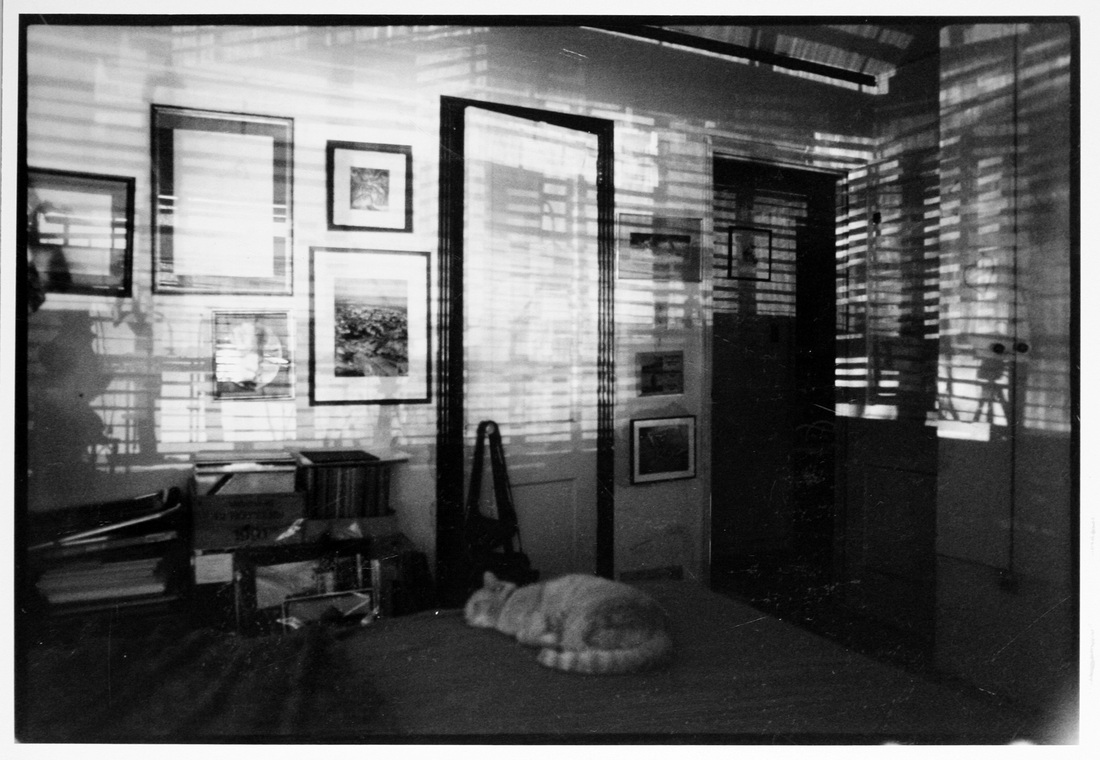
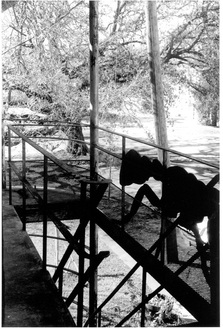
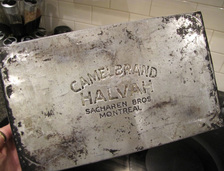


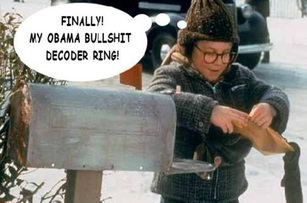

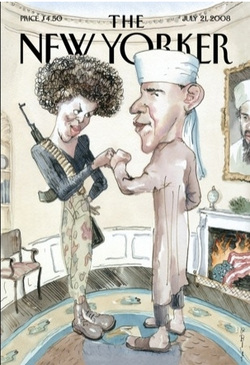
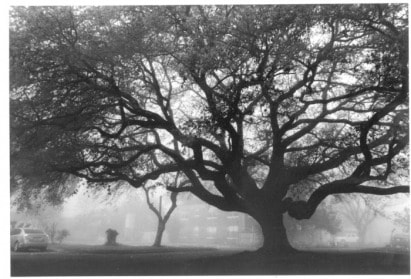

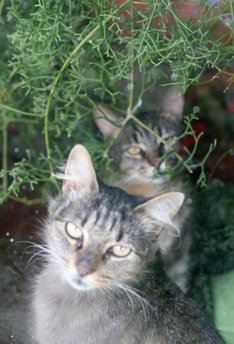
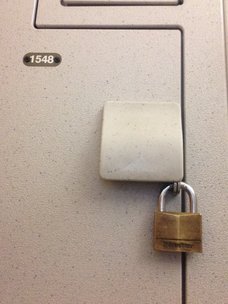
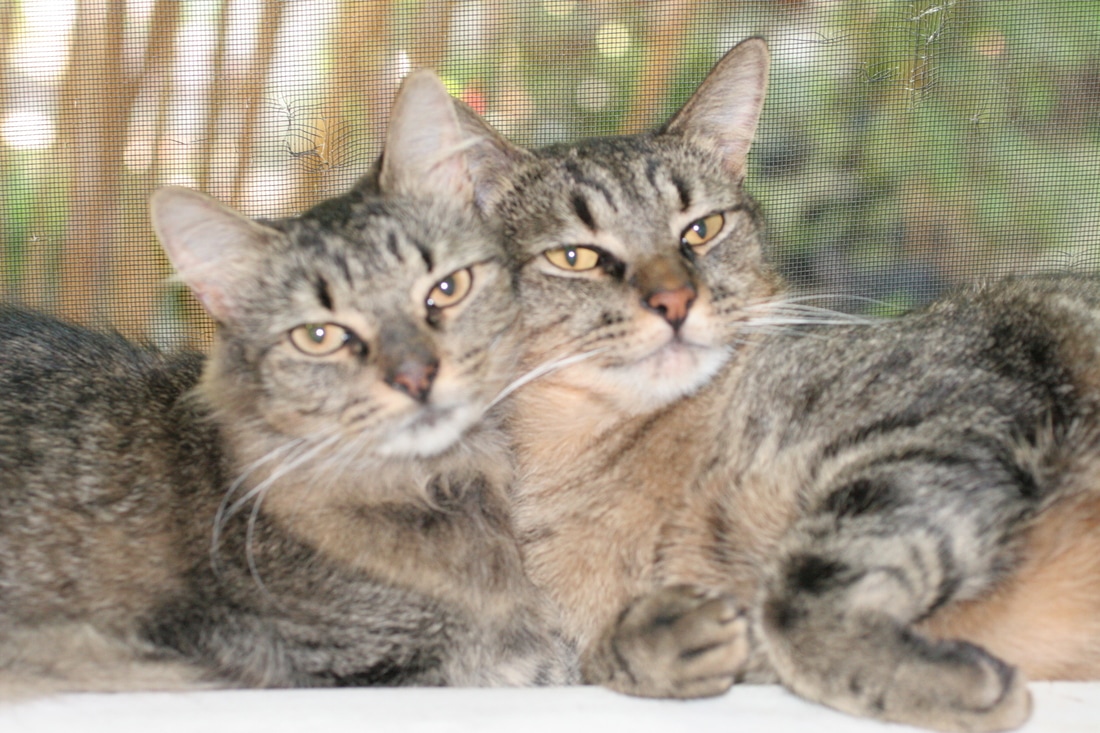
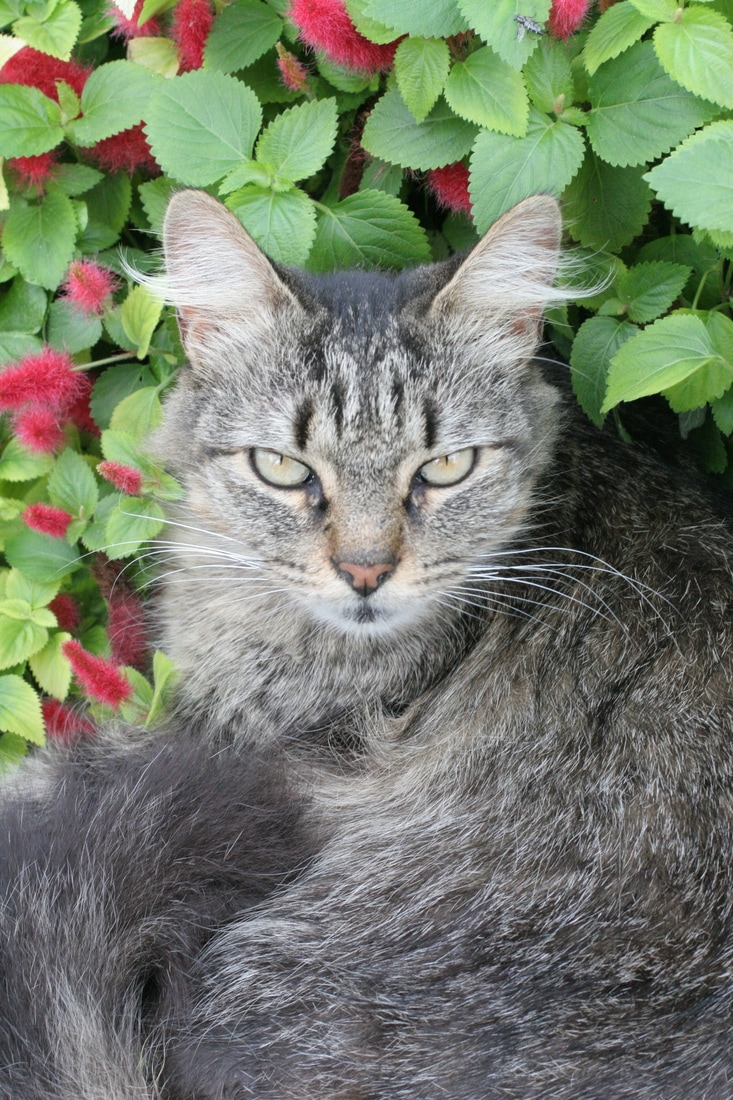
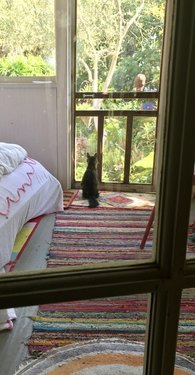
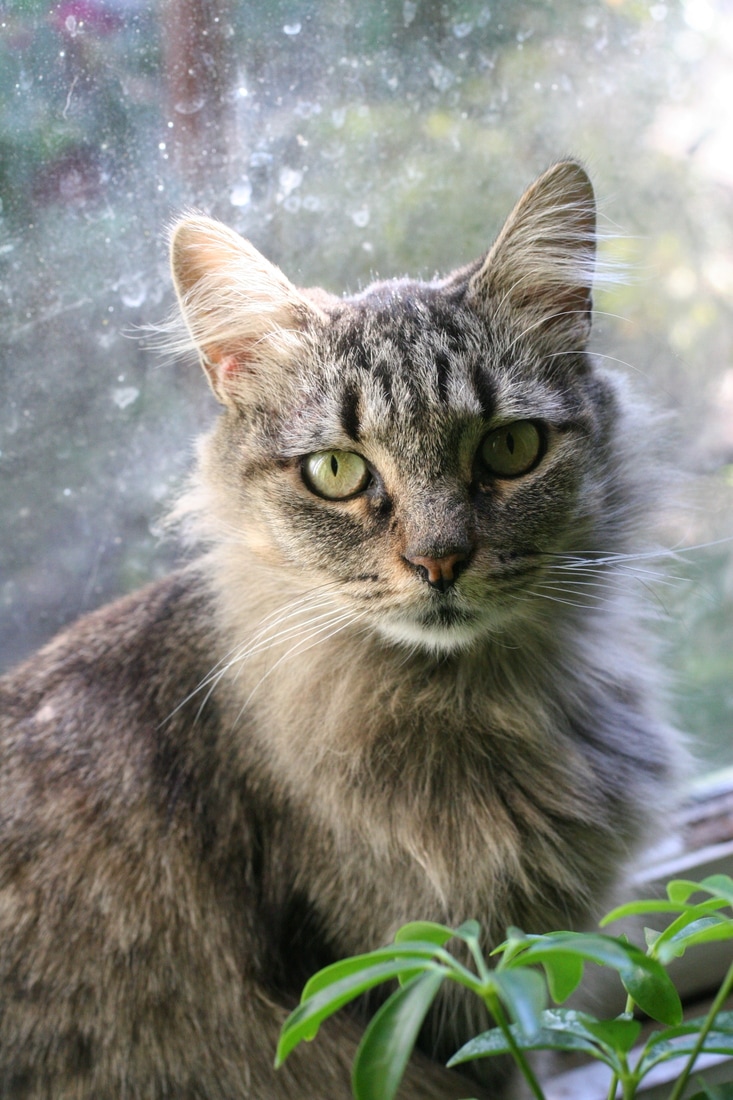
 RSS Feed
RSS Feed
